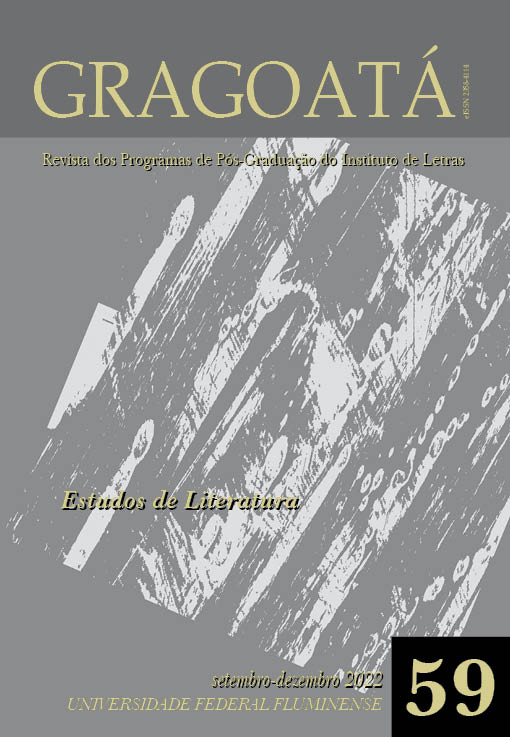Too human, mundane and situated: universal, in portuguese language
DOI:
https://doi.org/10.22409/gragoata.v27i59.53940Keywords:
Guimarães Rosa, Mia Couto, postcolonial theories, José SaramagoAbstract
This article deals with three Portuguese-speaking authors, seeking to place them based on certain issues, typical of postcolonial theories, and in tune with a provocation launched by Saramago, in a 1986 novel. I start by considering this provocation, in A Jangada de Pedra, about the integration of Portugal into Europe, into the West. From there I make some notes on the integrating function assumed in the canonical name of Guimarães Rosa, which arises at a decisive moment in the modernization of the country, articulating conflicting things such as the regional and the universal. I study possible similarities between the canonical model of Rosa and that of Mia Couto, who, having acted in the independence process of his country, was active in this modernizing transition. It seems to me that postcolonial theories, as well as Saramago's critical metaphor, help to think certain outlines of these two universal models, belonging to the literature of the former colonies of Portugal. To outline these models, I will make some observations about the publishing project for Antes das primeiras estórias [2011], a posthumous anthology of short stories by the young Guimarães Rosa, with a prologue by Mia Couto. I will consider possible transfers from Rosa's model to Mia Couto's.
Downloads
Downloads
Published
How to Cite
Issue
Section
License
Copyright (c) 2022 Gragoatá

This work is licensed under a Creative Commons Attribution 4.0 International License.
Authors who publish in Gragoatá agree to the following terms:
The authors retain the rights and give the journal the right to the first publication, simultaneously subject to a Creative Commons license CC-BY-NC 4.0, which allows sharing by third parties with due mention to the author and the first publication by Gragoatá.
Authors may enter into additional and separate contractual arrangements for the non-exclusive distribution of the published version of the work (for example, posting it in an institutional repository or publishing it in a book), with recognition of its initial publication in Gragoatá.

Gragoatá is licensed under a Creative Commons - Attribution-NonCommercial 4.0 International.














